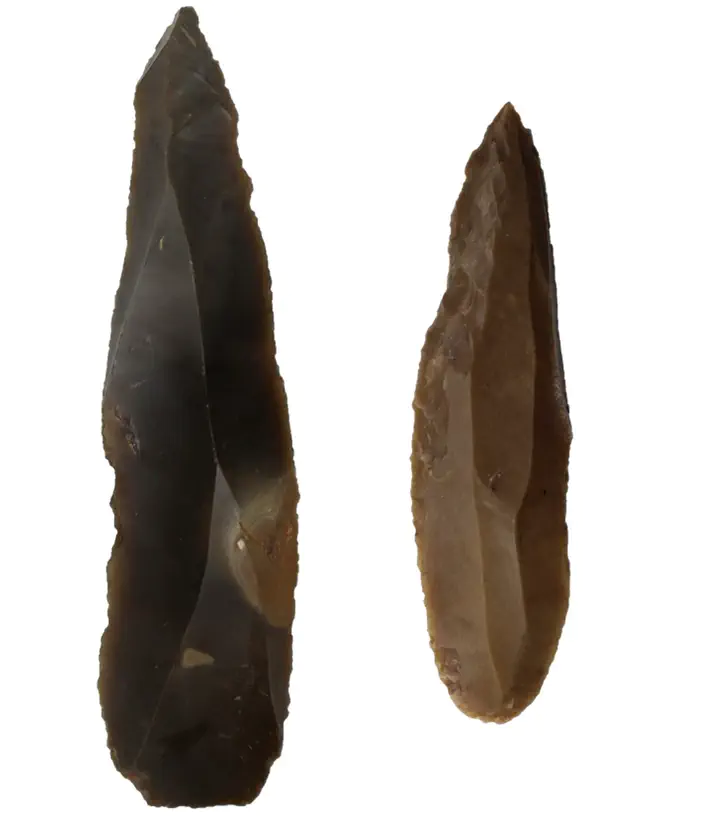Reevaluating the Early Upper Paleolithic Sequence at Ksâr ‘Akil, Lebanon (Layers XX-XIB)
 Photo from C. Bergmann et al. (2017) The Palaeolithic Sequence of Ksar ‘Akil, Lebanon. Cambridge University Press
Photo from C. Bergmann et al. (2017) The Palaeolithic Sequence of Ksar ‘Akil, Lebanon. Cambridge University PressResearch Objectives
- Examine the lithic assemblages from layers XX-XIB, excavated during the 1947–1948 Boston College excavation at Ksâr ‘Akil, currently housed at the Peabody Museum of Archaeology and Ethnology, Harvard University.
- Quantify technological variability across the stratigraphic sequence and refine our understanding of the site’s chrono-cultural development through core reduction sequence analysis, attribute analysis, and 3D modeling.
- Investigate the techno-typological diversity of the Early Ahmarian and explore its potential connections to the European Protoaurignacian, a relationship that has yet to be tested.
- Develop an Open Access repository featuring 3D models and attribute data.
Research Collaborator
- Prof. Steven L. Kuhn (Department of Anthropology, University of Arizona).
Research Stays
- March-June 2023: Research stay at the Department of Anthropology, Harvard University (Boston, USA).
- September-October 2024: Research stay at the Department of Anthropology, University of Arizona (Tucson, USA).
Funding
- Deutsche Forschungsgemeinschaft (Bonn, Germany)
- Reinhard-Frank-Stiftung (Hamburg, Germany)